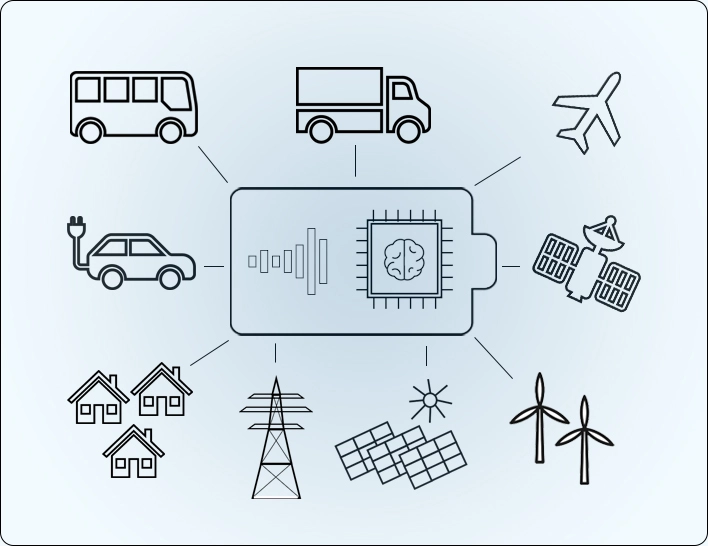Focus:
- Expansion of the partner network and determination of requirements for various use cases
- Development of hardware and software solutions for flexible long-term applications
- AI algorithms for diagnosis and operating strategy of intelligent battery storage systems
Summary:
The project “Learning battery systems for highly flexible and sustainable long-term applications” (LernBaLanz), funded by the Bavarian State Ministry for Science and Art, pursues the goal to adapt the intelligent battery storage systems to the requirements of highly flexible and sustainable long-term applications (e.g. commercial vehicles, aerospace, stationary storage systems, energy supply etc.) and further expand the existing competence in further application areas.
Due to the architecture and functionalities of learning battery systems offer the potential to significantly improve the efficiency and safety in operation as well as the lifetime and sustainability of the storage systems compared to conventional solutions. For this goal learning battery systems requires a need-specific communication concept, software and intelligent operation strategies to control the power electronics, which for optimal utilization simultaneously considers the specific properties of the individual battery cells within the integrated system and the specific application requirements. Therefore, the learning algorithms and methods combine the knowledge of various models with real measurement data of decentral distributed sensors for voltage, current, temperature, pressure etc. in order to determine the states and quality of each cell at any time. In particular the estimation of quality of the overall system down to cell level leads to a significantly higher value retention of the energy storage. Thereby the sustainability of battery systems in long-term applications such as in stationary storages (home storage or buffer storage for charging stations) or in the commercial vehicle sector with intensive use (e-trucks and e-buses) can be significantly increased. In addition, learning batteries with decentralized actuators exhibit a reconfigurable system architecture ensuring safe and reliable operation of the entire system for the longest possible time period.
An essential part of the project is also to extend the existing partner network in industry and research for the purpose of mutual exchange and cooperation with other companies and research groups in various sectors.

Contact
Sascha Speer, M.Sc.
Phone: +49 841 9348-6513
Room: S421
E-Mail: Sascha.Speer@thi.de



![[Translate to English:] Logo Akkreditierungsrat: Systemakkreditiert](/fileadmin/_processed_/2/8/csm_AR-Siegel_Systemakkreditierung_bc4ea3377d.webp)








![[Translate to English:] Logo IHK Ausbildungsbetrieb 2023](/fileadmin/_processed_/6/0/csm_IHK_Ausbildungsbetrieb_digital_2023_6850f47537.webp)


